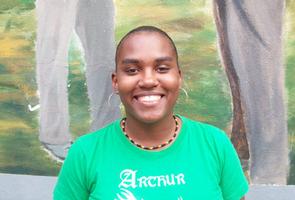


Danique Patterson
- Elgin Taylor
Recently there has been much talk that enough is not been done for members of the disabled community. This is a viewpoint also shared by Danique Patterson, a Bachelor of Special Education-degree student at Mico University College in St. Andrew.
In a recent interview with The Star, she drew attention to inadequate provisions being made for these persons.
"Jamaica has a long way to go when it comes to government and society understanding these individuals and facilitating their needs," she posited.
Patterson mentioned the lack of ramps in public places necessary provision. She also said, a in addition to what is being done by schools, parents too need to create a nurturing environment at home.
The Authur Grant House member revealed that she has just completed her course of study and was looking forward to graduation in November. Her specialisation, she noted, is mild to moderate disabilities, which include students with emotional and/or behavioural disorders, learning disabilities, and mild-moderate intellectual disabilities.
less fortunate
Prior to attending Mico, she taught for a year at Mona Preparatory School in St. Andrew as an assistant teacher. It was at Mona, she said, that she came in contact with a number of these less-fortunate children, and also took the decision to specialise in this branch of education.
In one specific case she mentioned, the challenges posed by a boy in her class, whose dominant condition was oppositional defiance disorder (ODD). A feature of this condition is, that for instance, if the teacher raises her voice 10 decibels, he would raise his 20 decibels or more. She said he was very disruptive and, in order to assist him, she had to do studious research.
Patterson stressed that these children can learn and do learn, and that some of them are even geniuses.
functioning peers
"These persons do learn but at a slower rate than normal-functioning peers. They have different abilities and you would be surprised to know many of them are gifted in areas such as music, visual arts, athletics, logic and in speech," she noted.
The Ardenne High School graduate pointed to four modes of learning - visual, audio, tactile and kinestic - and emphasised that the teacher must know the abilities of the students and develop their skills.
Her motto is: 'every child (no matter the disability) has intrinsic talents and, when nurtured and guided, can contribute positively to society.'
She hopes to gain a Masters degree in speech therapy and become a speech pathologist. This would enable her to get to the root causes of speech and language impairment.